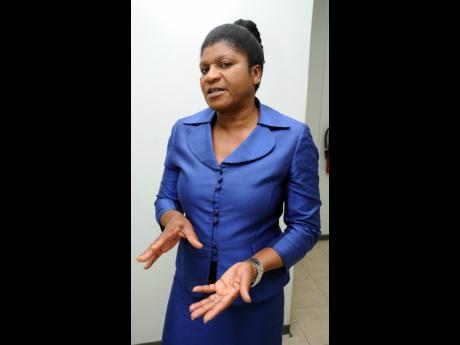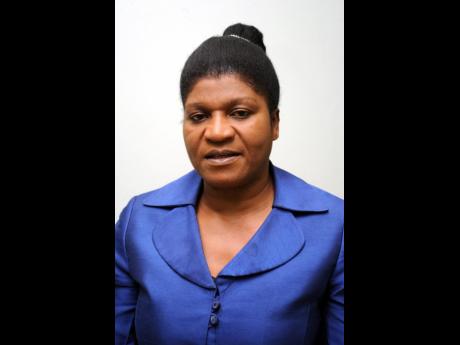Cadet Academy changing the prospects of unattached youth
As the Ministry of Education and Youth continues to try to locate some of the thousands of youth who were reported missing from the classroom during the pandemic, the police is now open to enrolling those who remain unattached into The Cadet Academy at the National Police College of Jamaica (NPCJ).
According to Gladys Brown, superintendent of police and attorney-at-law, who teaches law at the NPCJ in Twickenham Park, Spanish Town, some of the unattached youth are not interested in attending school anymore, while others have found ways of earning a living.
However, the police, through The Cadet Academy, wants to offer them academic training, but only if a connection is made by the youth themselves, their family members or concerned residents.
“We have also established the Cadet Core. We have opened a Cadet Academy at the National Police College of Jamaica where the cadets are now taken in from between [ages] 15 to 17 and they’re groomed, coached and monitored and supervised and developed to become officers of the force. If they’re not interested in that area, then we channel them into other positive areas where their energies can be harvested and channelled into productivity for Jamaica,” Brown said.
“There are young people who are not doing well in the school setting. We are extracting them now, and we are asking the parents that once you recognise that, to link with the police because we are taking them now from the normal school setting and putting them in the Cadet Core where they will be getting the same CSECs (Caribbean Secondary Education Certificate) and the same CAPE (Caribbean Advanced Proficiency Examination) teaching but in smaller groups, and with people like me who care to teach them so they can pass the requisite subjects to join any institution in Jamaica,” she said.
Brown said gone are the days when the police would allow our young people to become gang members.
“We are now reaching out as police officers to get them before the gun men get them. That way we are hoping that will not only ease the mothers’ and the fathers’ minds, but it will cut down on crime,” she said.
Brown was a panellist in the recent Association of Christian Communicators and Media (ACCM) forum called ‘Well Springs; Wisdom from the Word for a better World’ and under the theme ‘The role of the Christian Church in building safer communities’.
The forum was held online.
Brown said she is open to continue teaching law to unattached youth and will offer them subjects and courses they need to become certified for the world of work.
The Cadet Academy is also a good place for students who need to become enrolled in a sixth form programme, as the Ministry of Education and Youth now stipulates for every youth leaving fifth form.
When asked by Bishop Herro Steve Blair, moderator of the AACM forum, to identify the main factors driving crimes in local communities, Brown said, “The word on most persons lips is unemployment, but from a police perspective, we don’t think it is unemployment, because there are lots of jobs that our young people can get and training is available for them,” Brown said.
OPENLY ACCEPTING
She gave examples such as the HEART/NSTA Trust, the Housing, Opportunity, Production and Employment (HOPE) and other programmes from the Government, which are openly accepting youth for training and job placements.
“Many of them [unattached youth] are not interested [in school or training]. They don’t want to stay in school, and even since COVID, we’ve had a greater challenge in that many of the young people who left school during COVID have not even gone back to school. Some are still at home and some are on the streets hustling,” Brown said in her response.
She said, for example, these unattached youth can be seen at stop lights across the Corporate Area.
“What is driving crime [is] a lot of unemployable young men in particular, not that we don’t have young women too, but young men in particular who are not interested in working nine-to-five for a living, but they want to get quick money, whether from scamming or from breaking into a shop or from holding up someone, so that they can buy what they want, which could be the latest clothing,” she said.


